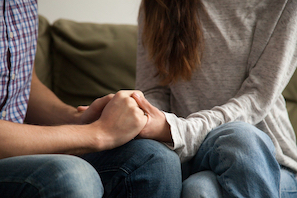Sophie was 25 when she first met James. She fell ‘head over heals’ in love with him on their very first date and over the next year, he was romantic and thoughtful at all times. Sophie was thrilled to marry the man of her dreams. Once married, however, James seemed to change. He never hit her, but then he never missed a chance to verbally cut her down to size either. He insulted her for not finishing her college degree and for working as an administrative assistant, he degraded her by calling her insulting names in front of his friends, he oftened called her stupid. He never seemed to stop.
Her family noticed that Sophie was a diminished version of herself when she was with James. She seemed to let herself be browbeaten into jumping up to meet his every need and never once stood up for herself when, clearly (in their mind) he was out of line in the way he talked to her. Soon, Sophie wasn’t calling very often and the family visits stopped entirely. She had no friends any longer and all of her time was spent either at work or with James.
When a co-worker overheard a conversation Sophie had with her husband one day, she told Sophie that she didn’t seem really happy. When Sophie admitted that the her marriage was difficult, her colleague gave her the name of a professional counsellor. Sophie was fearful what James would say if he knew she was going to see a counsellor, but she felt like she needed to do something to restore her sense of self. Sophie contacted the counsellor and was able to arrange an appointment during her lunch hour, so that there would be no need to explain her absence to James.
When Sophie met Debbie, she was relieved to find that Debbie simply listened quietly to her as Sophie explained the reasons for making the appointment. She felt a sense of calm and control that she hadn’t felt in quite some time. Debbie carefully explained how she worked and let Sophie know that her job was to help Sophie sort out her feelings, rebuild her confidence, and provide a safe space for her to talk without any judgments or assumptions.
Over the next several months, Debbie listens carefully to Sophie’s story and to her emotions. She notices how bright Sophie’s face is when she talks about that first year of being with James and comments at how much in love Sophie had been with James during that time. Sophie agrees and wonders if that is the reason she has allowed James to pull her down so far. She begins to cry and feel like her life is a huge mess. Debbie reassures her that her problems with James do not make her a bad person.
As Sophie slowly gains her confidence back, she begins to unconsciously change how she interacts with James. When he demands attention, she delays responding. When he throws an insult at her, she simply turns and leaves the room. He is baffled by her change of attitude, but doesn’t know how to react to it either.
Finally, Sophie admits to James that she has been seeing a therapist and that she wants a change in their relationship. She would like James to attend couples counselling with her, but if he refuses to go, she understands but their relationship will be forever damaged. To her great surprise and joy, James is prepared to address her issues and agrees to make an appointment with a relationship counsellor recommended by Debbie.












































